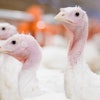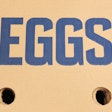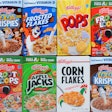
Africa-based food service business Famous Brands announced the early completion of its 100% cage-free egg sourcing pledge in its 2022 Integrated Annual Report. The sourcing goal was met three years ahead of the company’s deadline set in 2025.
Famous Brands owns 21 brands including Steers, Debonairs Pizza, Fishaways, Lexis, Lupa, Mythos and more. It operates 2,824 restaurants located throughout Africa, the Middle East, the United Kingdom and Ireland.
The grocery sector and cage-free deadlines
Multiple foodservice companies are making progress on cage-free goals, such as Cheesecake Factory, but this is due to the minimal number of eggs it utilizes compared to the grocery sector.
Some companies in the grocery sector, such as Walmart and Kroger, have gone as far as announcing that they will not meet their previous cage-free pledges due to supply issues, the cost of production and the strain that cage-free pledges and housing legislation have put on the U.S. egg industry.
According to Walmart's newly revised animal welfare commitment, cage-free egg sales are slower than the company had hoped and only comprised 20% of its total shell egg sales in its U.S. locations and 36% in its Sam’s Club locations.
As of November 2022, Walmart has not set a new 100% cage-free deadline. It did, however, publish a detailed plan to continue its cage-free transition in its recent sustainability report. The company plans to invest in lowering the shelf price of cage-free eggs and will continue to promote cage-free eggs through proper shelf space allocation and placement.
Even though Kroger’s proportion of cage-free eggs sales has increased slowly since 2016, most of its customers are still purchasing conventional eggs due to price, according to the company’s animal welfare pledge.
Now, Kroger plans to transition 70% of its egg supply to cage free by 2030. The milestones it plans to reach include: 33% by 2022, 41% by 2024, 54% by 2025 and 61% by 2028, depending on consumer engagement. Additionally, Kroger plans to invest approximately $45 million in sourcing agreements, pricing, promotions and merchandising to help continue converting its egg supply to cage free.


















